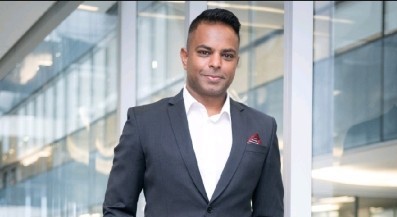Women’s Day in South Africa, celebrated every year on August 9, marks the anniversary of the Women’s March of 1956, where women marched to the Union Buildings to protest against the carrying of passbooks in the apartheid era. Today, it draws attention to the need to foster development for women and young girls in the country and globally.
This year’s theme is: “Women’s Socio-Economic Rights and Empowerment: Building Back Better for Women’s Improved Resilience”. Generation Equality, as a concept, is a global campaign, linking South Africa to global efforts to achieve gender equality by 2030.
Few topics have received as much attention in the development sector in recent years as gender. Yet, despite the United Nations panel discussions, reports, and even financial commitments, the 2022 SDG Gender Index shows little improvement in gender equality around the world between 2015 and 2020.
Despite all our efforts, this should come as no surprise. From the pandemic to war and climate change, data and experience show that women are disproportionately affected. Social and economic setbacks leave women and girls in societally weaker positions than men and boys.
When climate change causes droughts, women and girls walk further and longer to fetch water. When access to healthcare, clean water and electricity is inadequate, maternal mortality rates increase. When economies come under pressure, women in informal jobs are more likely to lose their livelihoods. Moreover, girls are more likely to lose their access to education, continuing this cycle.
Agence Francaise de Developpement (AFD) collaborates with organisations that identify gender equality as key drivers of their development policies and benefits. This approach to gender is firmly rooted in the recognition of the need to ensure gender equity. AFD’s financial commitments have been devoted to projects that have gender equality as a principal or significant objective.
In South Africa, these programmes range from supporting the social empowerment of women through conservation initiatives, to upskilling women as game developers and animators and archivists.
To support the biodiversity sector, Conservation International, through the Pronature Enterprises Project, supported by AFD, aims to achieve environmental impact through nature-friendly enterprises that put women at the forefront as beneficiaries and environmental custodians.
A variety of enterprises owned and led by women in two implementation sites of the project, namely the Kruger-to-Canyons Biosphere and Mvenyane village, Eastern Cape contribute to rangeland restoration and protection of natural resources. Activities these enterprises engage in include the sustainable management of livestock and waste management through recycling solutions that promote the health of the rangelands, while providing crafts to the tourism industry.

Unboxing Mayibuye: Access to Digital Heritage is a capacity development project. The project centres on building the capacity of the University of the Western Cape Robben Island Museum Mayibuye Archives to integrate digitisation into archival practices, while developing public access to the Robben Island Museum archives.
This is a tripartite project, with financing from AFD, and technical support from the French National Audiovisual Institute (INA). INA provides training for the archive staff, the majority of whom are women. In addition, six young project assistants are participating in the three-year project. Four of these youth are women. The training will contribute to building a cohort of young archivists, equipped with conceptual and technical skills to enter the terrain of the digital archive.
Kayleen Johnson: AFD RIM INA Digitisation Project Assistant, says: “This project enables us as women to work in an industry that has previously been dominated by males. Therefore, affording us the opportunity to bring about diversity and change within both an archival space and a technological one.”
“I am excited to be a part of a project that strives to strengthen women’s resilience through technology and digitization. This project has the ability to highlight women’s perspectives, and develop more diversity in the digital world,” says Harriette Tuge: AFD RIM INA Digitisation Project Assistant.

Projects like this prove that gender is more than a development theme or topic deserving attention for a few years or even on a designated day every year.
“Development and gender are inextricably linked. Gender is not an independent challenge that can be tackled on its own. Instead, it must be considered and integrated into all development work. Our partners continue to strive towards this goal, making gender not only a focus area but a key part of everything it does – every day,” concludes Chloé Bertrand at AFD.



